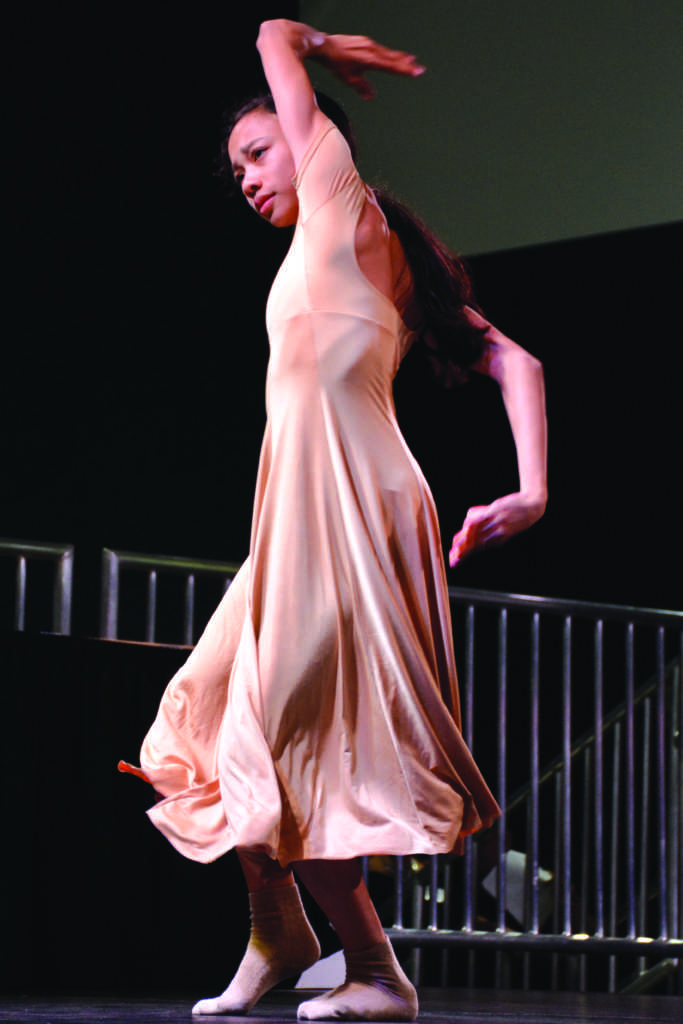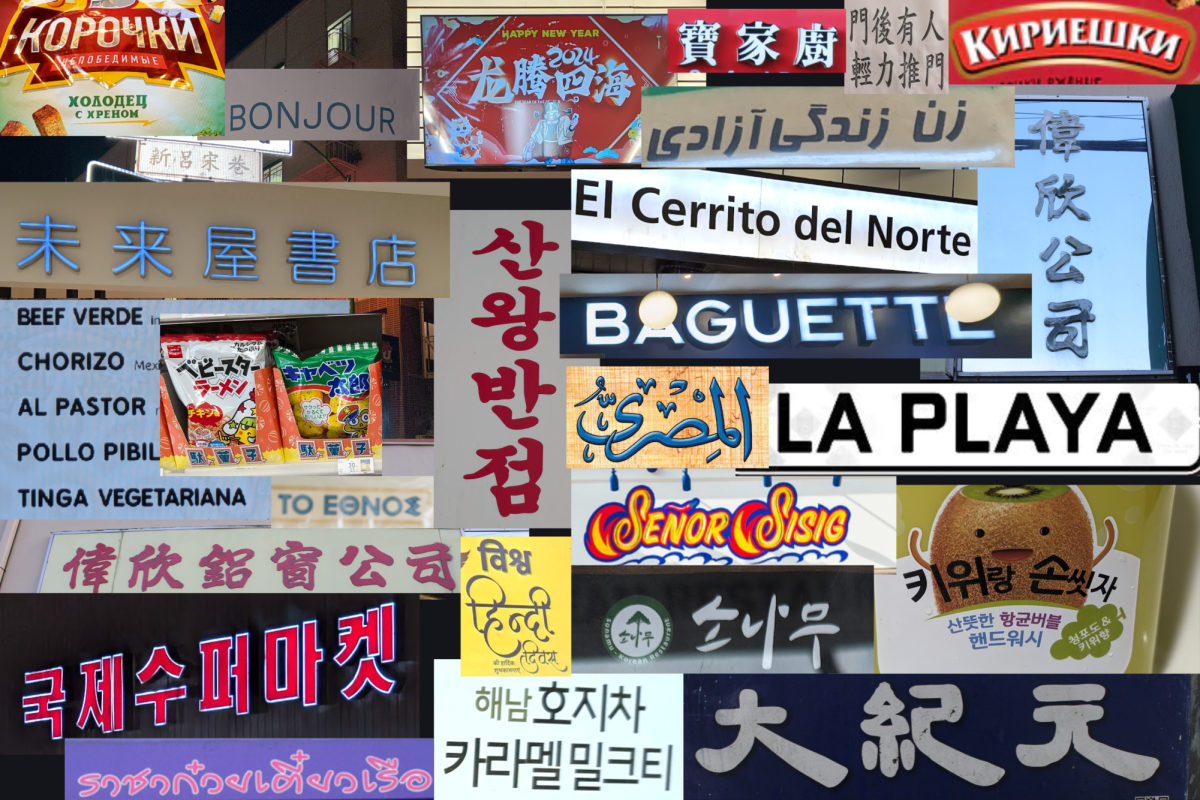Award-winning ballerina, Mahalaya Tintiangco-Cubales, performs during Moving Mountains: A Celebration of 50 Years of Asian American Studies at SF State. (TRISTEN ROWEAN/Golden Gate Xpress)
The College of Ethnic Studies hosted “Moving Mountains: 50 Years of Asian American Studies at SF State,” to honor alumni and the progress the Asian American Studies program has made since the 1968 student-led strike.
At the gala event Saturday, veterans of the strike that led to the creation of the nation’s first College of Ethnic Studies wore flowers pinned to their chests.
SF State alumnus, Pulitzer Prize-winning journalist and Emmy-winning documentary director Jose Antonio Vargas spoke about the importance of being educated in Ethnic Studies when covering politics today.
“I was a political reporter during the Obama campaign,” said Vargas, who minored in Africana studies while at SF State. “I think I was the only political reporter at the Washington Post who actually knew African American political history. So that [Africana studies minor] was very useful to me, because so much of what we’re taught history-wise is eurocentric.”
Vargas, a Filipino American, expressed his pride in his Asian American heritage. He recalled that the cover of his book, “Dear America: Notes of an Undocumented Citizen,” was originally going to be red, white and blue, but he chose to change it to yellow to identify with the Asian American community.

The documentary filmmaker and journalist also shared his experience of “coming out” to the public as an undocumented immigrant, and getting no federal response. Vargas mentioned specifically calling ICE to question if they will deport him, and getting, “We can’t comment on your case,” as a response.
The decorated journalist’s experience contrasts with the 95,360 immigrants removed by ICE during the 2018 fiscal year, according to the Fiscal Year 2018 ICE Removal and Operations Report.
Apart from celebrating those who paved the way for the Asian American program at SF State, the College of Ethnic Studies brought attention to problems they are facing in America and abroad.
President Leslie Wong was among the many Asian American alumni and faculty at the event.
“I think the future is ready for us to get out there and show other campuses in the state how to do the same,” Wong said. “I always worry that this is the first and the last College of Ethnic Studies.”
State Assemblymember Phil Ting and District 4 Supervisor Gordon Mar commended Wong on his service to the Asian community.
Many at the gala said the University should explore the idea of dedicating a major to Asian American studies as it has helped many students find a career that empowers other people within the community.
“It’s always so encouraging to be a part of the Asian American movement that’s always been happening,” said Jane Hwamc, a SF State graduate student. “Knowing that I have work that’s been done before me … people that have done equally or more powerful things. It’s inspirational.”
Some said it is necessary for SF State to expand the College of Ethnic Studies, but it needs students to make the push to force the University to listen.
“The strike was like a catalyst to make you think about more than yourself,” said Attorney Daro Inouye, a veteran of the 1968 protest. “If you got a state of mind where you think, ‘Oh my god, I’m only one vote,’ that’s bullshit. It takes one person to start things in a direction.”











